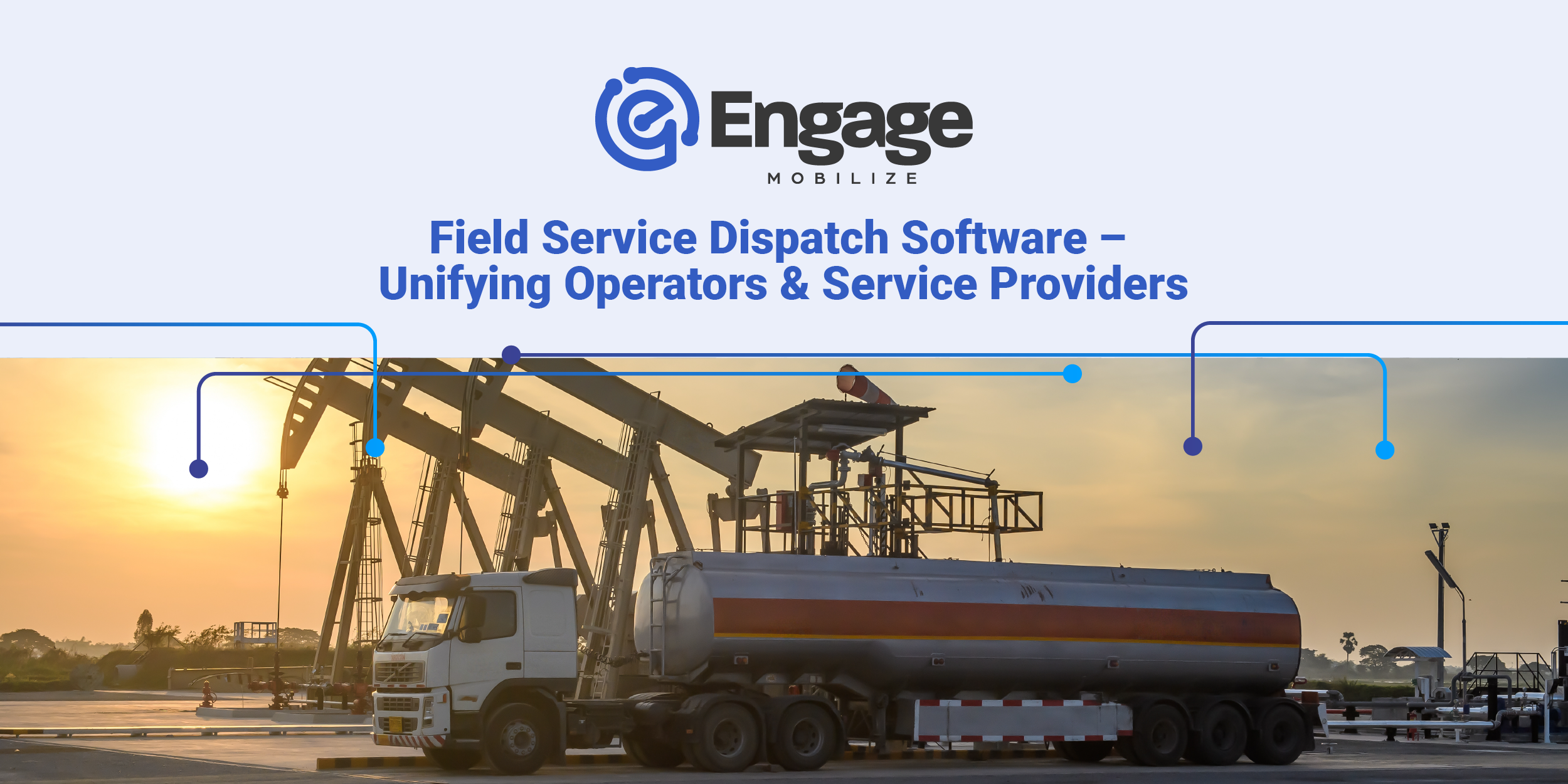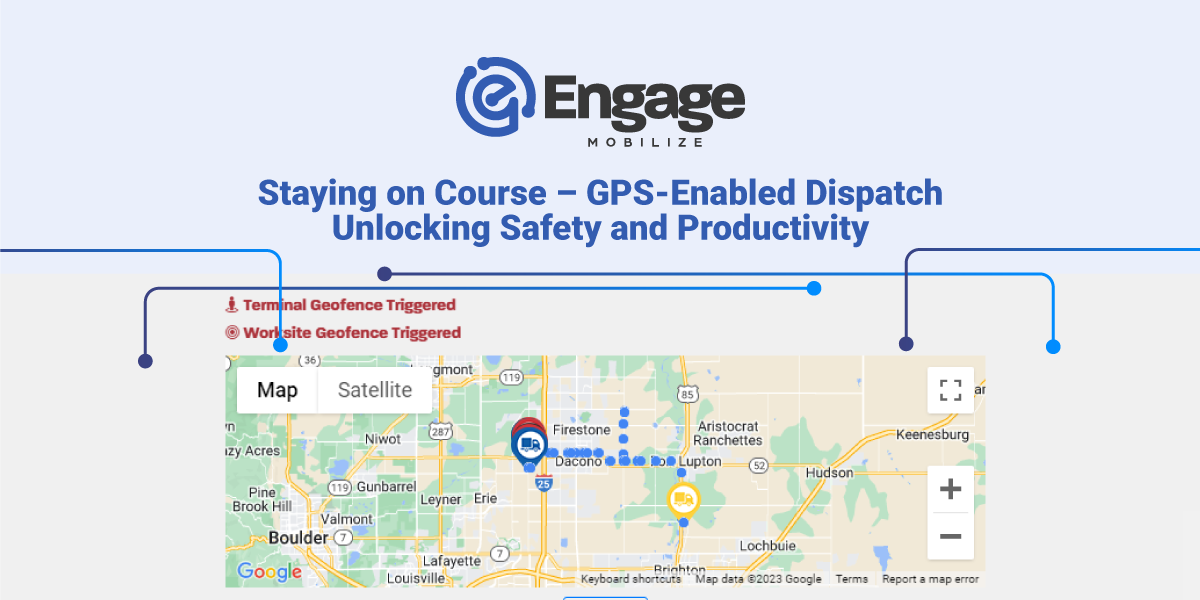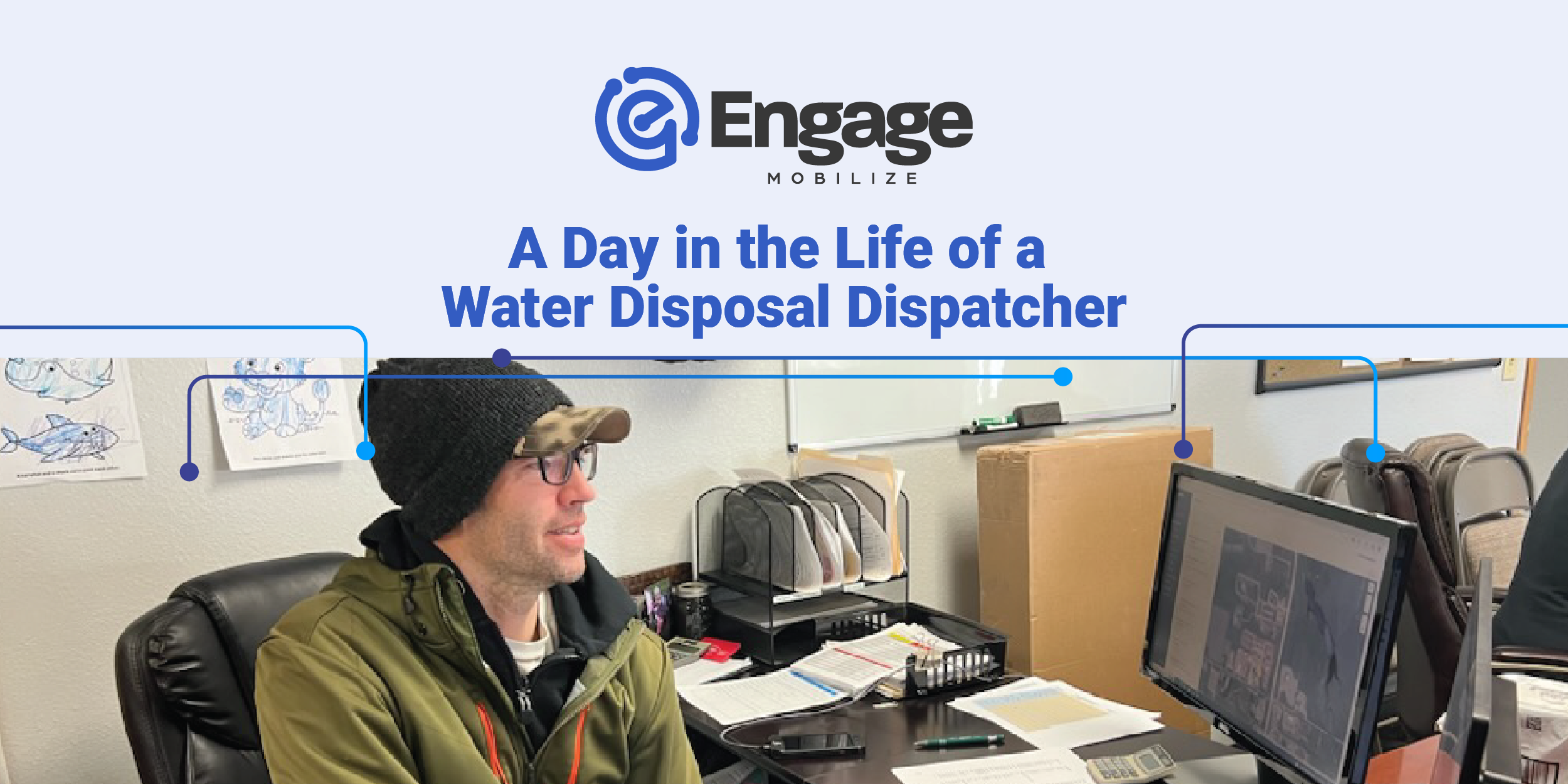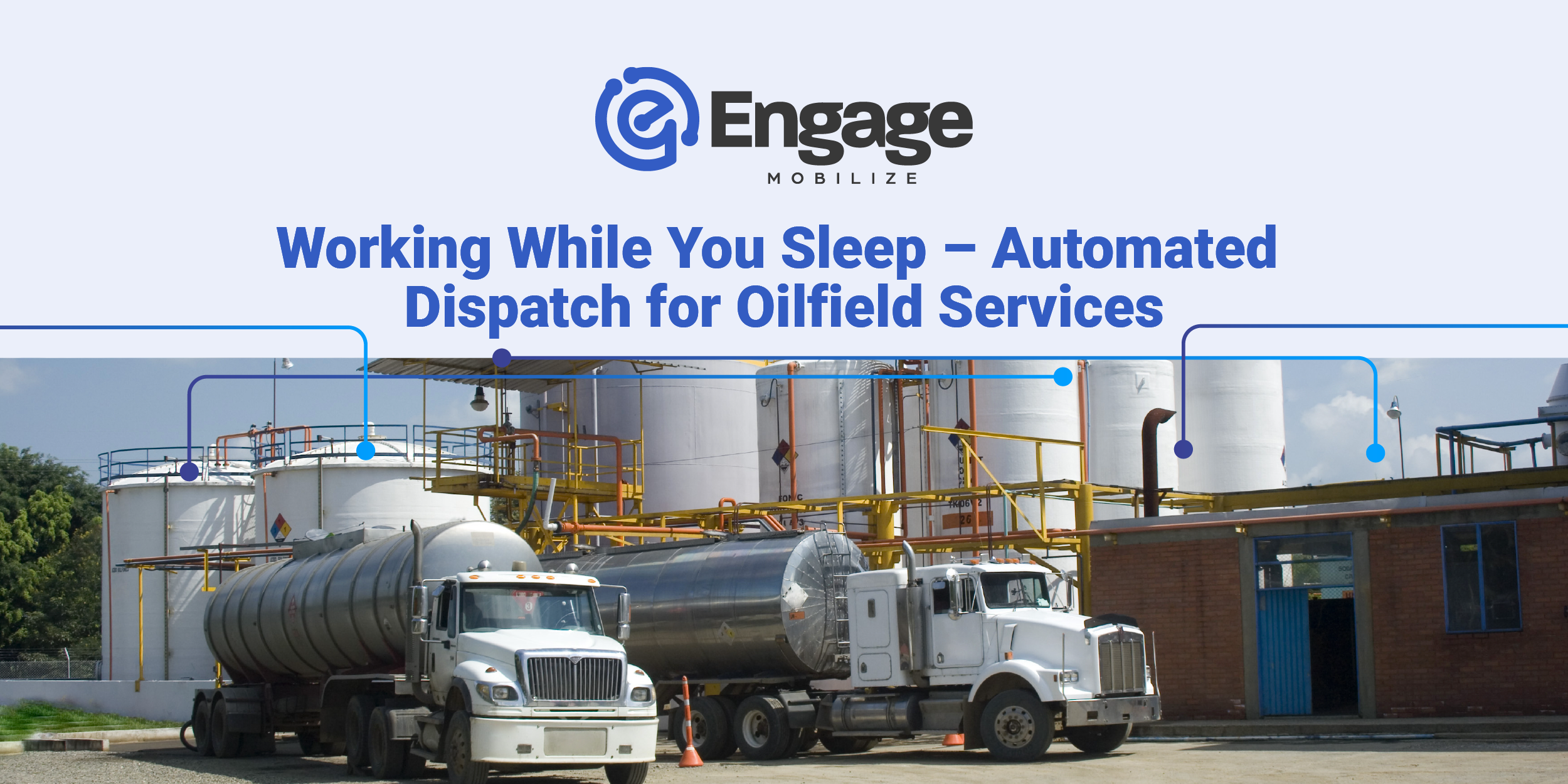Field Service Dispatch Software – Unifying Operators and Service Providers

Patching the Holes in Field Service Dispatch
Field Service Management (FSM) software is a broad category that covers a wide range of functionality, but dispatching field resources is at the core of FSM. Because of the nature of the oil and gas business (oil and gas wells and facilities are located across wide areas), solutions that simplify field service dispatch have the potential to generate significant improvements in efficiency, productivity and safety.
Traditional Dispatching
Field Service Management (FSM) software in the oil and gas industry facilitates everything from job dispatching to tracking, ticket submission and billing. However, traditional dispatch methods, including phone calls, text messages and emails, have proven vulnerable and inefficient.
Traditional dispatching methods typically involve manually assigning jobs, which is not only time-consuming but also prone to human error. It often requires extensive phone calls, text messages and/or email exchanges, leading to inefficient scheduling, high operating costs and limited visibility into field operations.
7 Vulnerabilities of Traditional Dispatch Methods
A quick analysis of traditional dispatching reveals several potential holes in the workflow that create potential vulnerabilities:
- Inefficient Scheduling: Coordinating multiple parties through phone calls and texts is cumbersome and can lead to scheduling conflicts.
- High Operating Costs: The labor-intensive nature of traditional dispatch methods drives up operational costs significantly
- Limited Visibility into Field Operations: Lack of real-time data hampers the ability to monitor job progress and make informed decisions.
- Inaccurate Billing and Invoicing: Manual data entry increases the risk of billing errors and disputes.
- Lack of Accountability: Tracking the responsibility for delays or mistakes becomes challenging.
- Compliance with Regulations: The oil and gas industry is heavily regulated, and manual dispatch methods can make it difficult to ensure compliance.
- Duplication of Effort: Multiple parties may engage in redundant communications, leading to inefficiency.
Predictive Dispatch: Maximizing Productivity with Automation
Engage Mobilize goes a step further with Predictive Dispatch to automate key routine tasks. Although the technology is sophisticated, the process of automated dispatch is simple.
Here is how it works:
- Water tank volume data from SCADA systems is communicated directly to Engage E-Ticketing. If SCADA data doesn’t exist, Engage Mobilize can use historical data, average time to site and flow rates.
- The Engage Mobilize E-Ticketing solution uses a proprietary algorithm, based on production data, tank and battery design, to predict when a water load is ready for pick up.
- Once a water tank nears the preset capacity threshold, a water transport order is automatically generated and sent to the water transport OFS company for review and assignment.
- Once the OFS company accepts and assigns a job, it is automatically loaded onto the assigned driver’s mobile app for pick up and disposal.
It is not just field workflow productivity that can be enhanced, automation can also benefit the back office.
- Electronic ticket data can be seamlessly and automatically uploaded into production accounting and invoicing software, eliminating the need for re-keying data into these systems.
- The E-Ticketing system can automatically approve tickets that fall within a preset, acceptable range of validation.
Benefits of Engage Mobilize Dispatch
The advantages of using Engage Mobilize are profound:
- Faster Response Times: Operators and vendors find it easier to communicate through the digital interface, saving time compared to numerous phone calls and texts.
- Avoiding Duplication of Effort: Jobs are assigned to specific crews or units, minimizing redundancy.
- Increased Efficiency: More work can be accomplished with fewer resources, thanks to automation.
- Improved Productivity: Reduced time spent on dispatching allows for a greater focus on higher-value tasks.
- Visibility and Accountability: Both operators and vendors have real-time visibility into job progress.
- Accuracy: Validated data can be used for automatic approvals and rejections, saving time and effort.
- Improved Safety: Less time on the road (windshield time) and better communication with field workers enhance safety compliance (OSHA 1915.84).
- Reduced Emissions: GPS-optimized routes lead to fewer miles driven and reduced Scope 3 emissions.
- Reduced OPEX: Greater efficiency, productivity, and fewer short hauls result in lower operational costs, both in absolute and per-barrel terms.
Summary
Engage Mobilize can patch the holes in traditional field dispatch by uniting operators and service providers on a single, digital platform. By eliminating the inefficiencies and vulnerabilities of traditional dispatch methods, Engage Mobilize’s intelligent field operations software can help you achieve higher levels of productivity, efficiency, and safety.
Contact us today at (720) 575-6695 or Sales@engage-m.com to learn how Intelligent Field Automation Software from Engage Mobilize can help you achieve new levels of operational efficiency and create a competitive advantage.
Are you ready to learn more?
We’re ready to talk to you about the specific cost savings, workflow efficiencies and data insights that come from taking your field operations digital.
Share this
Similar Stories

Enhance Field Service with Engage Mobilize: GPS-Boosted Transparency & Efficiency

A Day in the Life of a Water Disposal Dispatcher

